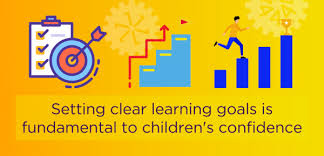Study Hacks to Learn Faster and Retain More Information
Studying efficiently is essential for students who want to learn faster and retain information better. Whether you’re preparing for exams or learning a new subject, improving your study techniques can make a significant difference in your academic success. In this article, we will explore a variety of study hacks that will help you boost your learning speed and retention. From memory-boosting techniques to time-management strategies, these tips will give you the tools you need to become a more effective learner.
1. Use Active Recall
Active recall is one of the most powerful study techniques for improving memory retention. Instead of passively reviewing notes or re-reading textbooks, active recall requires you to actively retrieve information from memory. This strengthens your brain’s ability to recall the material when you need it most, such as during exams.
How to implement active recall:
- Test yourself on the material by writing down what you remember or using flashcards.
- After studying a topic, close your book and try to explain the key points without looking at your notes.
- Keep practicing until you can recall the material easily.
2. Apply Spaced Repetition
Spaced repetition is based on the concept that reviewing material at increasing intervals helps reinforce long-term retention. This technique combats the forgetting curve and ensures that information sticks in your memory for longer periods.
How to use spaced repetition:
- Use apps like Anki or Quizlet that automatically schedule reviews at optimal intervals.
- If you’re using physical flashcards, organize them into piles based on how well you know each topic. Review the difficult cards more frequently and the easy ones less often.
- Spaced repetition can help improve your retention without overwhelming you with information.
3. Teach What You Learn
Teaching others is one of the best ways to solidify your understanding of a topic. When you teach, you’re forced to explain the material in your own words, which forces you to process and organize the information more deeply.
How to use teaching to your advantage:
- Find a study buddy or explain the material to a family member or friend.
- If you don’t have anyone to teach, try teaching aloud to yourself as if you were giving a lesson.
- The process of verbalizing your knowledge will reinforce your learning.
4. Use Mnemonics and Memory Aids
Mnemonics are memory tricks that can help you recall complex information. They work by associating difficult concepts with something simpler and more memorable, like an acronym or a vivid image.
Examples of mnemonic techniques:
- Acronyms: For example, the acronym “PEMDAS” is a mnemonic for remembering the order of operations in math (Parentheses, Exponents, Multiplication, Division, Addition, Subtraction).
- Rhymes or Songs: Create catchy songs or rhymes to remember facts or lists.
- Visual Imagery: Create mental images or stories that connect facts to something more vivid and memorable.
5. Practice Focused and Diffuse Thinking
Focused thinking is when you concentrate intensely on a particular problem or subject. Diffuse thinking, on the other hand, is when you step back and let your mind wander. Both types of thinking are essential for learning.
How to balance focused and diffuse thinking:
- During study sessions, use focused thinking for problem-solving and detailed work, but make sure to take breaks and let your mind rest with diffuse thinking.
- After intense study, go for a walk or do something relaxing. This allows your brain to make new connections and integrate information in the background.
6. Chunk Information for Easier Recall
Chunking is a technique where you group related pieces of information into larger, more manageable units. By breaking down complex information into smaller chunks, your brain can more easily process and retain the material.
How to chunk information:
- When studying a long list of items or a complex subject, break it down into categories or themes.
- For example, if you’re studying history, chunk information into decades, key events, or important figures.
- Use bullet points, diagrams, or mind maps to organize information into chunks that make sense to you.
7. Prioritize Sleep for Memory Consolidation
Sleep is critical for memory consolidation, the process by which short-term memories are transferred into long-term memory. Skipping sleep in favor of cramming can negatively impact your ability to recall information.
How to improve sleep for better learning:
- Aim for 7-9 hours of sleep per night to allow your brain to process and consolidate what you’ve learned.
- Take naps after intense study sessions to help retain information and prevent mental fatigue.
- Avoid cramming the night before exams, as it’s more effective to review the material and get a good night’s rest.
8. Eliminate Distractions
Distractions are one of the biggest obstacles to effective studying. Whether it’s your phone, social media, or background noise, distractions can hinder your ability to focus and retain information.
How to eliminate distractions:
- Use apps like “Focus@Will” or “Forest” to block distracting websites or apps during study sessions.
- Find a quiet study space where you can focus and avoid interruptions.
- Consider using the “Pomodoro Technique” to break study sessions into focused intervals, with short breaks in between to stay fresh.
9. Use Multiple Senses to Reinforce Learning
The more senses you engage while studying, the more likely you are to retain the information. Combining visual, auditory, and kinesthetic learning techniques can help reinforce what you’re learning.
How to use multiple senses:
- Watch educational videos or listen to podcasts related to the subject.
- Use colors, diagrams, and illustrations in your notes to make them more visually appealing.
- Actively engage with the material by writing or drawing out concepts rather than just reading them.
10. Set Clear, Achievable Goals
Setting clear and achievable goals helps you stay motivated and focused. It gives you a roadmap for your study sessions and allows you to track progress over time.
How to set study goals:
- Break your study goals into smaller, manageable tasks that you can complete in a short time frame.
- Use the SMART goal framework (Specific, Measurable, Achievable, Relevant, Time-bound) to create well-defined objectives.
- Reward yourself for achieving goals to stay motivated and on track.
11. Practice Mindfulness and Meditation
Mindfulness and meditation can reduce stress and improve your focus and concentration, which are essential for effective studying. Taking a few minutes to center yourself can make your study time more productive.
How to incorporate mindfulness:
- Start or end your study session with a 5-10 minute mindfulness meditation to calm your mind.
- Use mindfulness techniques during study breaks to refresh your focus and prevent burnout.
- Practice deep breathing to stay calm and focused when studying difficult subjects.
12. Study in Short, Consistent Sessions
Rather than cramming all your studying into one long session, break it down into shorter, more consistent sessions. This helps keep your focus sharp and prevents mental fatigue.
How to implement this technique:
- Use the Pomodoro Technique—study for 25 minutes, then take a 5-minute break. After four sessions, take a longer 15-30 minute break.
- Spread your study sessions over several days or weeks instead of cramming all at once.
- Consistent, shorter study intervals are more effective than long, marathon sessions.
Conclusion
By incorporating these study hacks into your routine, you can learn faster, retain more information, and study more effectively. From active recall and spaced repetition to optimizing your study environment and setting goals, these strategies are backed by research and proven to enhance learning outcomes. Remember, effective studying isn’t about studying harder; it’s about studying smarter. With these techniques, you can take your academic performance to the next level and achieve your learning goals more efficiently.


